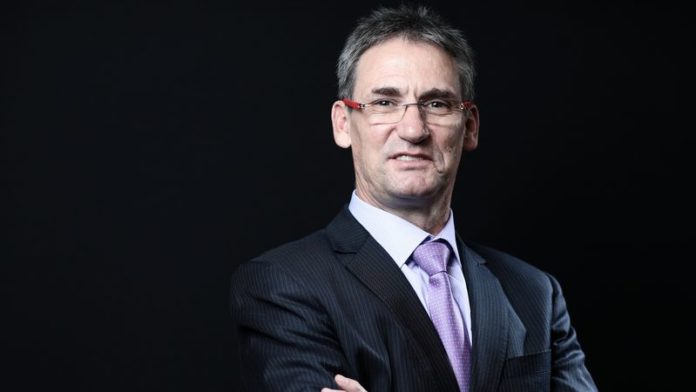
FOLLOWERS of Gold Fields will have marked out Thursday in their diaries as that’s when the company is to report its second quarter and interim numbers.
It’ll also be the first reporting period when its new CEO, Chris Griffith, can speak in clearer terms of plans he has for the company. Investors will want to know his plans for South Deep, Gold Fields’ South African mine, and whether he has broader ambitions for Gold Fields in the longer term?
At the time of an interview for Miningmx’s Mining Yearbook 2021 – two months after he started the job – Griffith was reticent to be quoted on the topic of strategy. “I’m in the listening phase,” he said. He did add, however, that he liked what he’d seen at Gold Fields so far.
Griffith was a high-flyer at Anglo American, having run both Anglo American Platinum (Amplats) and before that iron ore producer Kumba Resources, so his decision to step down in February last year took many by surprise.
Not only did he leave Amplats on a high at the age of 55, but he was viewed as a strong contender for the top slot in the ‘Firm’ – CEO of Anglo American itself.
So, was it not worth may be hanging in there a bit longer to see if he could make it all the way to the top of the greasy corporate pole? Griffith replied: “That was a consideration, but I did not really see myself as being competitive for that role because of my lack of international experience.
“So, rather than wait for a number of extra years and potentially jeopardise a new opportunity, I thought that was a great time to leave. I had done what I needed to do at Amplats and felt it was the right time to move on. At my age I would be able to offer another company another very competitive period of my life.”
Another school of thought was that Griffith had felt constrained by the corporate structure where he was the CEO of Amplats, but had to report to “Big Brother” in the form of Mark Cutifani, CEO of Anglo American, which owns 80% of Amplats.
Griffith concedes the point, but reckons it was not material, commenting: “There are more complexities with a listed company with its own board and processes but which also has a major shareholder.
“That major shareholder has a material say in the processes and the final outcomes and direction of the company. A lot of CEOs have battled to manage those complexities but I think I managed to tap-dance and navigate my way around them fairly well.
“Anglo American was incredibly respectful of the board and the minority shareholders. Their view was you could put forward any project provided it had the right returns. It may have taken a bit longer but the bottom line is that I never felt there was anything I wanted to do that I could not do.”
South Africa
When it comes to no-holds-barred confrontations with the South African government over running a mining business, Griffith has paid his dues and has the scars to prove it.
Yet, despite the bruising events that took place in 2013, when Griffith started the process to restructure Amplats’ then loss-making Rustenburg operations, he remains optimistic over South Africa as a mining destination.
“We have difficulties and the noise always seems to be louder in South Africa, but it is still a jurisdiction where you can mine and it’s one of the better places to operate. It’s just a shame that it is harder than it needs to be.”
In January 2013, then mines minister Susan Shabangu launched an all-out attack on Griffith after he announced plans to restructure Amplats’ loss-making Rustenburg mines, which would involve the loss of 14,000 jobs.
The ANC intervened in the Section 189 process to restructure the mines and Amplats eventually modified its plans, retrenching 6,000 workers plus 900 “corporate and overhead employees”.
Fast-forward to the present and Griffith sounds optimistic about the situation here despite the political challenges that remain for the mining industry. “This ongoing uncertainty over the Mining Charter is not helpful. Getting that done and dusted is the right thing to do.”
“We still don’t have the most investor-friendly policies. You get mixed messages around some of that [from government] saying we really are going to focus on this but then nothing happens for massive periods of time.
“The minister has given undertakings that he is looking at these things and all of the South African mining industry would like to see that happen much, much faster.
“But, having said that, we are not the only country that faces challenges, including many other so-called mining investment-friendly countries.”
For the full story as it appeared in our 2021 Mining Yearbook, please visit the special ebook section below.













